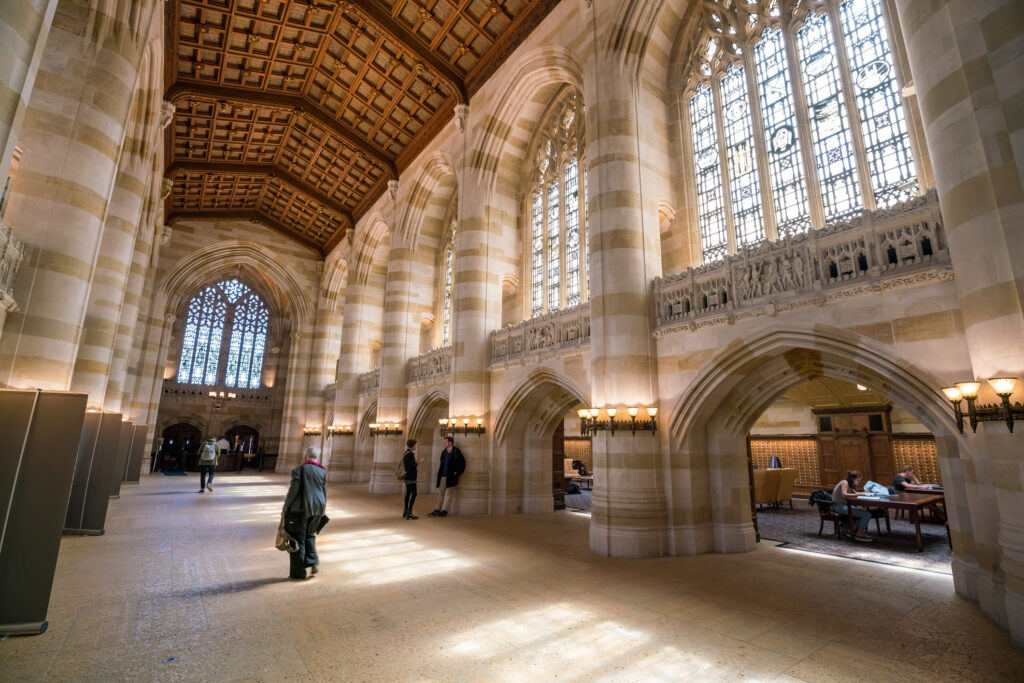College Education, Featured
University of Alaska Prepares for Budget Slash from Which It May “Never Recover”
Elika Roohi

The University of Alaska system is bracing for a 41 percent cut in funding from the state, after Governor Mike Dunleavy vetoed a $130 million line item in the state’s budget on June 28.
“It is with grave concern for the future of our university and our state that I share with you devastating news of the budget Gov. Mike Dunleavy released this morning,” wrote University of Alaska President Jim Johnsen to members of the university.
Legislators in Alaska have until midnight on Friday to vote to override the vetoes, something which many Alaskans are imploring their representatives to do at the moment. To override, a vote of 75 percent (or 45 legislators) is needed, but it is looking increasingly unlikely that is going to happen as the deadline draws ever nearer. (The legislature can’t even agree on a location to meet, with 38 legislators meeting in Juneau, the state’s capital, and the other 22 meeting with the Governer at Wasilla Middle School, several hundred miles and a plane journey away.)
These vetoes “will strike an institutional and reputational blow from which we may likely never recover,” Johnsen wrote, ominously.
What does this even mean?
What does it mean for a state when its public universities are so dramatically defunded? Especially for a small (but large, but yes, we mean small) state like Alaska?
In Alaska, the University system is one of the biggest things around. It drives a lot of different aspects of the community and economy, and serves more than 26,600 students across three main campuses and multiple branch campuses in more remote locations.
“If we lay people off, they aren’t going to walk across the street and get another job at another company, because we’re it,” Johnsen said. Alaska has almost no private four-year institutions, and what it does have are minuscule and religiously-affiliated schools.
Economists are warning that cuts such as these—which, while most dramatically affect the university, have also been extended to numerous other social programs—could pull the state back into a recession. Lower gas prices over the last few years had caused a downturn in the economy, from which Alaska was only just starting to recover.
Impact on climate
The University of Alaska is also a leading institution for climate research, and such deep cuts will impact the future of environmental studies.
The Alaska Center for Climate Assessment and Policy at the University of Alaska Fairbanks is the primary academic center for Arctic research in the US, and “every climate change researcher, educator, scientist and student in the lower 48 whose work touches the American Arctic” relies on the center’s work, Victoria Herrmann, the president of the Arctic Institute, told Gizmodo. “If the UA is defunded at the current rate, Arctic research in every corner of America will suffer.”
Economic impact
To meet these cuts, all sort of options will be considered. Johnsen envisions having to close down one of the system’s three universities. Should they manage to stay open, the budget veto could put the University of Alaska at risk of losing accreditation, the Northwest Commission on Colleges and Universities warned. For now, furlough notices have been sent to 2,500 employees and there has been a freeze on hiring and travel.
Economists estimate that there will be a loss of over 4,000 jobs, with about 2,000 tied to the cuts to the university specifically. Keep in mind, Alaska is a state with less than a million people. An impact to the livelihoods of 4,000 people is one that will shake communities, especially for those that have always had a hard time holding onto their bright, young people.
Many college-bound Alaskan students set their sights on studying out of state for a variety of reasons—to experience something new or to pursue a program not offered at home—but of the students that leave, only 20 percent return after graduation.
This isn’t a brain drain, “it’s a brain gusher,” said Johnsen to NBC.
Why is this happening?
So why is Governor Dunleavy so intent on a course of action that could have far-reaching consequences for his state? The answer lies in the way the Alaskan economy works.
Alaska is an oil-rich state, and never seeing the need, never bothered to implement sales tax or income tax. The state in fact has so much money from its natural resources, that it cuts each of its citizens a check every October from a pot of money called the Permanent Fund. The check, called a Permanent Fund Dividend or PFD, generally ranges between $1,000-2,000, although in some prosperous years, it has been higher.
Following the downturn in oil prices a few years ago and without revenue from taxes, the state has been supplementing its budget with the PFD and cutting smaller checks. In 2018, for example, the dividend was estimated to be $2,700; however it was reduced to $1,600 by legislative action.
Governor Dunleavy doesn’t want government spending to draw upon the PFD funds, and supports a full PFD check for every citizen. His budget reflects that ideology, also revealing how challenging such a plan is for a state that depends on falling oil prices and collects a very small amount of taxes.
What makes Alaska special
I grew up in Alaska and got my journalism degree at the University of Alaska Fairbanks. Budget cuts are always looming in the public sector and have been simmering for the UA schools for a few years. The programme I graduated from was cut the year after I left UAF, students in Fairbanks interested in journalism can now get a communications degree with a journalism concentration. Or they could, who knows what the future holds.
I went to UAF largely because of the scholarship money. Alaska offers a generous scholarship to students who graduate in the top ten percent of their class, called the Alaska Performance Scholarship. This too, has not been dispersed this year, although its unrelated to the budget cuts. Some 12,000 students received letters this week warning them they would no longer receive their scholarships or state-backed tuition because of a failed budget vote in the Legislature and a decision by the Governor.
And yet, while financial reasons drove me to study in Fairbanks, what kept me there was the vibrant and warm community that grew in a town known for being cold and dark. It flourishes because the young people, the artists and musicians, the outdoor enthusiasts, the geologists and biologists all have a place to mix. With a university looking at cutting programs, jobs and opportunities, its exactly the sort of thing that’s going to be lost.
See also: Here’s What’s Happening with Harvard and Kyle Kashuv
Cornell Alumni Earn Medals at Pyeongchang Winter Olympics
Crash Landing: Two College Freshmen Found Dead after Plane Accident near Colgate University

















